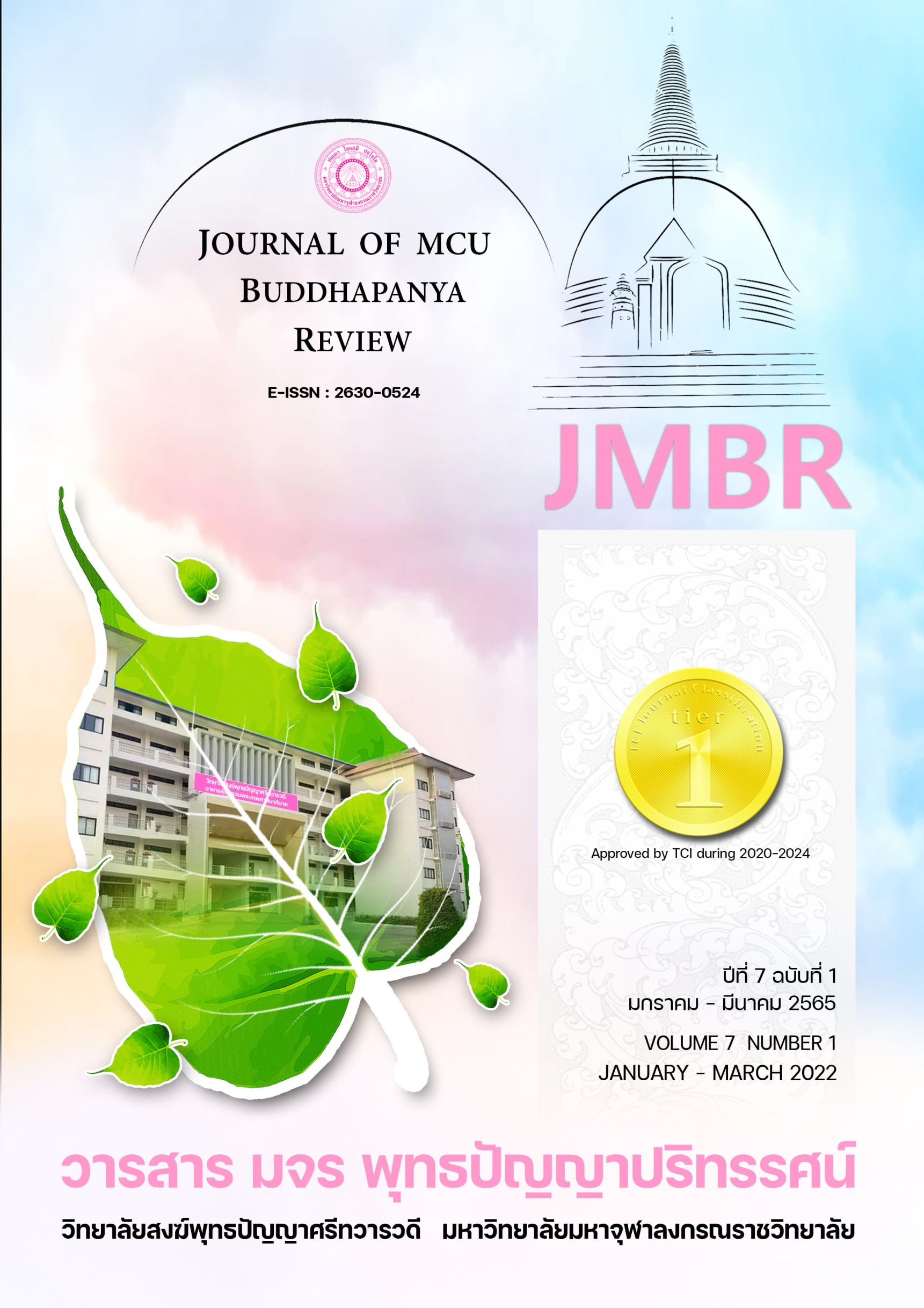รูปแบบการบริหารแบบมีส่วนร่วมในการจัดการอาชีวศึกษาระบบทวิภาคี ของสถาบันการอาชีวศึกษาภาคกลาง 3
PARTICIPATORY MANAGEMENT MODEL ON BILATERAL VOCATIONAL EDUCATION MANAGEMENT FOR CENTRAL INSTITUTE OF VOCATIONAL EDUCATION 3
คำสำคัญ:
อาชีวศึกษาระบบทวิภาคี, รูปแบบการบริหารแบบมีส่วนร่วมบทคัดย่อ
การวิจัยครั้งนี้มีวัตถุประสงค์เพื่อพัฒนารูปแบบการบริหารแบบมีส่วนร่วม สู่มาตรฐานการจัดการอาชีวศึกษาระบบทวิภาคี สถาบันการอาชีวศึกษาภาคกลาง 3 ในการดำเนินการวิจัยแบ่งออกเป็น 4 ขั้นตอน ดังนี้ ขั้นตอนที่ 1 การศึกษาข้อมูลพื้นฐานสำหรับการสร้างรูปแบบการบริหารแบบมีส่วนร่วม สู่มาตรฐานการจัดการอาชีวศึกษาระบบทวิภาคี สถาบันการอาชีวศึกษาภาคกลาง 3 โดยการสังเคราะห์เอกสารที่เกี่ยวข้อง และการศึกษาแนวทางในการพัฒนาอาชีวศึกษาระบบทวิภาคี สถาบันการอาชีวศึกษาภาคกลาง 3 โดยการสัมภาษณ์ผู้ทรงคุณวุฒิ จำนวน 5 คน ขั้นตอนที่ 2 การสร้างและหาคุณภาพรูปแบบการบริหารแบบมีส่วนร่วม สู่มาตรฐานการจัดการอาชีวศึกษาระบบทวิภาคี สถาบันการอาชีวศึกษาภาคกลาง 3 โดยนำข้อมูลจากขั้นตอนที่ 1 มายกร่างรูปแบบการบริหารแบบมีส่วนร่วม สู่มาตรฐานการจัดการอาชีวศึกษาระบบทวิภาคี สถาบันการอาชีวศึกษาภาคกลาง 3 และหาคุณภาพด้วยการสนทนากลุ่ม โดยผู้ทรงคุณวุฒิ จำนวน 15 คน ขั้นตอนที่ 3 การทดลองใช้รูปแบบการบริหารแบบมีส่วนร่วม สู่มาตรฐานการจัดการอาชีวศึกษาระบบทวิภาคี สถาบันการอาชีวศึกษาภาคกลาง 3 โดยกลุ่มผู้ให้ข้อมูล เป็นครูฝึกในสถานประกอบการ 14 คน ครูผู้สอนในสถาบันการอาชีวศึกษาภาคกลาง 3 ปีการศึกษา 2563 จำนวน 87 คน วิเคราะห์ข้อมูลโดยการหาค่าร้อยละ ค่าเฉลี่ย ส่วนเบี่ยงเบนมาตรฐาน และการวิเคราะห์เนื้อหา
ผลการวิจัยพบว่า รูปแบบการบริหารแบบมีส่วนร่วมสู่มาตรฐานการจัดการอาชีวศึกษาระบบทวิภาคี สถาบันการอาชีวศึกษาภาคกลาง 3 ที่สร้างขึ้น ประกอบด้วย หลักการบริหารแบบมีส่วนร่วม องค์ประกอบที่ 1 คณะกรรมการบริหารแบบมีส่วนร่วมและขอบข่ายงานการบริหารแบบมีส่วนร่วม องค์ประกอบที่ 2 กระบวนการบริหารแบบมีส่วนร่วม และองค์ประกอบที่ 3 มาตรฐานการจัดการอาชีวศึกษาระบบทวิภาคี โดยผู้ทรงคุณวุฒิมีความเห็นว่ารูปแบบการบริหารแบบมีส่วนร่วม สู่มาตรฐานการจัดการอาชีวศึกษาระบบทวิภาคี สถาบันการอาชีวศึกษาภาคกลาง 3 โดยภาพรวมด้านความเหมาะสมและความเป็นไปได้อยู่ในระดับมากที่สุด และครูฝึกในสถานประกอบการและครูผู้สอน มีความเห็นว่าความสามารถในการนำไปใช้ได้ของรูปแบบการบริหารแบบมีส่วนร่วม สู่มาตรฐานการจัดการอาชีวศึกษาระบบทวิภาคี สถาบันการอาชีวศึกษาภาคกลาง 3 โดยภาพรวมสามารถปฏิบัติตามได้ อยู่ในระดับมากที่สุด
เอกสารอ้างอิง
Kamol Sudprasert. (2007). Participatory Operational Research of Practitioners. Bangkok: coordinating office Human Resource Development Project.
Ministry of Education. (2002), The Promotion of Labor Skills Development Act, B.E. 2002. Bangkok : Ministry of Education.
Kriengkrai Suphan, Saowanee Sikkhabandit and Kwanying Sriprasertphap (2018), Public relations management in private educational institutions in Bangkok. Academic journal University of North Bangkok. 7(1) : 58 – 67.
Jintana Ruamchomrat. (2015). Development of the Bilateral Vocational Education Management Model. in vocational college Under the Office of Vocational Education Commission. Thesis Doctorate of Education in Management for Educational Development. Kanchanaburi Rajabhat University.
Chatchawan Thatsiwat. (2007). Participatory Action Research. (Participatory Action Research-PAR) : A New Dimension of Research Methodology for Local Community Development. Bangkok: Ratchapark College.
Narong Rittidet. (2009). Development of a model for the implementation of the bilateral vocational education system. Thesis, Ph.D. Mechanical Department of Mechanical Education. University of Technology King Mongkut, North Bangkok.
Thanin Srichompoo et al. (2014). Development of a vocational education system administration model bilateral in education Under the Vocational Education Commission. Naresuan University
Boonchom Srisaat. (2010). Preliminary research. (7th edition). Bangkok : Suwiriyasan.
. (2011). Preliminary research. (9th edition). Bangkok : Suwiriyasan.
Benjawan Srikhamnuan et al. (2017). Factors Affecting Success in Vocational Education Management. bilateral system of educational institutions in Lampang under the Office of the Board Vocational Education, Silpakorn University Journal, 10(2),35-46.
Prapaphan Preewan et al. (2016). The causal relationship model of the components. that affect the development of vocational education in the bilateral system. Journal of Graduate Studies Valaya Alongkorn Rajabhat University, 10(2), 201-214.
Pittaya Chinachitphan. (2012). Model of teaching and learning management development Bilateral Vocational Education System Industrial technician branch. King Mongkut's Journal North Bangkok. 22(1): 180-190.
Paisan Worakham. (2015). Educational research. Mahasarakham : Taxila printing.
Mongkol Ratchabut. (2007). Factors Affecting Success in Vocational Education System Management. Bilateral, industrial technician category of the regional vocational institute Northeastern Region 6. Master of Education Thesis technology program Industry Graduate Committee. Surin Rajabhat University.
Yupawadee Siripirid. (2014). Bilateral vocational education management system in educational institutions under vocational education. Udon Thani Province. Thesis, Master of Education Educational Administration Faculty of Education Sanpol College
Secretary of the Education Council. (2007). Education and Synthesis of Educational Institution Management Models Development of educational institutions committees and network of educational institution administrators Prototype, Class 1. Bangkok: Office of the Education Council Secretariat.
Office of the National Education Commission. (2002), National Education Act, B.E.1999 Amended (No. 2) B.E. 2545. Bangkok: Office.
Office of the Vocational Education Commission. (2012). Policy, goals, strategy, production and Developing vocational education workers to be international, 2012 - 2026. Bangkok: Office.
Office of the Vocational Education Commission. (2014). Guidelines for the management of system vocational education. Bilateral according to the announcement of the Ministry of Education. Bangkok : Chamchuri Products Co., Ltd.
Thai-Japanese Technology Promotion Association. (2009). Accessed March 1, 2018. Accessed from http://www.tpa.or.th/writer/read_this_book_topic.php?passTo=40c7d8f199765 a6dbf39f46fc97f&pageid=23&bookID=1320&read=true count=true.
Office of the National Economic and Social Development Board. (2011). Economic Development Plan and National Society No. 10 (2007-2011). Bangkok: Office of the Prime Minister.
Office for Accreditation and Quality Assessment. (2004) Education Act 1999. Amendment No. 2 B.E. 2545. Bangkok ; sweet pepper Graphics Co., Ltd.
Office of the Secretary of the National Strategy Committee. (2018). National Strategy 2018-2580. Office of the Secretary of the National Strategy Board. Board of Directors National Economic and Social Development
Bono, J.D. (1996). The effect of a First - Time College conperative . Education work Experience on Maturity, Lelf – Esteem, and problem – Solvingsaill.
Bossons. (1989). An Introduction to school Administration. New York: Mcmillan.
Brook, Lynn.2007. Corporate and Academic Views on Importance of an MBA Graduate Skill Set and the effectiveness of the United States Master of Business Administration curriculum in developing those Skills. dissertation Abstracts International.67(11):214-225.
ดาวน์โหลด
เผยแพร่แล้ว
รูปแบบการอ้างอิง
ฉบับ
ประเภทบทความ
สัญญาอนุญาต
ลิขสิทธิ์ (c) 2022 วารสาร มจร พุทธปัญญาปริทรรศน์

อนุญาตภายใต้เงื่อนไข Creative Commons Attribution-NonCommercial-NoDerivatives 4.0 International License.



